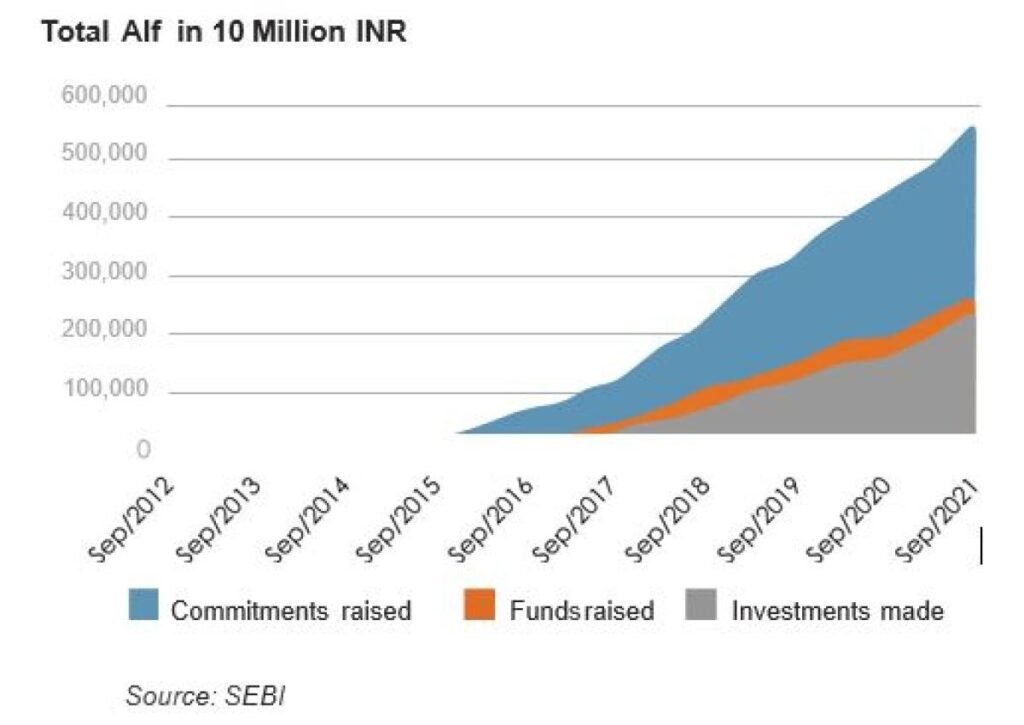The Rise of Private Equity in India: What’s Driving Business Investments in 2025

In 2025, India’s private equity (PE) landscape is experiencing a meteoric rise, with investments surging to an estimated $20 billion in the first three quarters alone, marking a 46% increase from 2024’s $15 billion. This unprecedented growth has positioned India as a premier destination for global and domestic PE firms, driven by a vibrant startup ecosystem, favorable macroeconomic conditions, and a robust regulatory framework. From technology and healthcare to infrastructure and consumer goods, PE investments are reshaping industries, fueling innovation, and creating millions of jobs. As India solidifies its status as the Asia-Pacific region’s second-largest PE-venture capital (VC) market, we explore the key trends and drivers propelling this transformative boom in 2025.
A Robust Economic Foundation
India’s strong economic growth, with a GDP growth rate of 6.2% in FY25, has created a fertile ground for PE investments. The country’s expanding middle class, now over 400 million strong, is driving consumer spending, particularly in digital services, retail, and financial products. This demographic shift has attracted PE firms eager to tap into India’s burgeoning consumer market. Additionally, stable fiscal policies, declining inflation, and a favorable interest rate environment have bolstered investor confidence, making India a beacon of stability amid global economic uncertainties.
The liberalization of foreign investment policies, including sector-specific relaxations, has further opened doors for global PE players. Initiatives like Make in India and Digital India have streamlined regulations, reduced bureaucratic hurdles, and incentivized investments in technology, manufacturing, and infrastructure. These reforms have made India an attractive destination for PE firms seeking high-growth opportunities with strong returns.
Technology and Fintech: The Vanguard of PE Investments
Technology, particularly fintech and software-as-a-service (SaaS), remains a cornerstone of India’s PE boom. In 2025, tech-first sectors captured over 60% of PE-VC funding, with fintech alone securing $6 billion across 80 deals. Startups like Zolve ($251 million) and Aspora ($53 million) are leveraging AI and blockchain to innovate in digital lending, fraud detection, and neobanking, catering to India’s 1 billion smartphone users and 900 million internet users.

The rise of consumer tech, driven by platforms like Zepto ($665 million) and Meesho ($275 million), reflects the sector’s resilience and scalability. These companies are capitalizing on India’s e-commerce boom, fueled by rapid urbanization and increasing digital penetration in Tier-2 and Tier-3 cities. PE firms like KKR and Sequoia Capital are doubling down on tech investments, providing not just capital but also strategic guidance to scale operations and expand globally.
SaaS startups, though experiencing a 60% funding decline in 2023 due to high valuations, have rebounded in 2025 with renewed investor interest in companies with strong annual recurring revenue (ARR) and scalable solutions. Firms like Blackstone and General Atlantic are backing SaaS players that enhance enterprise efficiency through AI-driven automation and cloud-based solutions, positioning India as a global SaaS hub.
Healthcare and Biotech: A Surge in High-Growth Investments

Healthcare has emerged as a powerhouse, attracting $2 billion in PE investments in 2025, driven by consolidation in multi-specialty providers and the rise of single-specialty chains. Notable deals include Manipal Health ($380 million) and Apollo 247 ($300 million), reflecting investor appetite for medtech, diagnostics, and regional healthcare providers. Hyderabad-based biotech startups like Bharat Biotech and D-NOME are leading innovations in vaccines and genomics, supported by PE firms like Advent International and ChrysCapital.
The sector’s growth is fueled by India’s rising healthcare needs, an aging population, and increased focus on personalized medicine. Government initiatives, such as the Biotechnology Industry Research Assistance Council (BIRAC), have provided funding and mentorship, enabling biotech startups to scale rapidly. The global recognition of India’s healthcare innovations, coupled with cost-effective R&D, has made the sector a magnet for PE capital seeking long-term value creation.
Infrastructure and Real Estate: Building India’s Future
Infrastructure and real estate have claimed a significant share of PE investments, with $4.3 billion invested in real estate alone in 2024, a 10% increase from the previous year, and projections for 2025 estimating inflows of $4.5–5 billion. The industrial and logistics sector led with 88% of investments from foreign institutional investors, driven by India’s emergence as a global supply chain hub. Deals like the American Tower Corporation’s megadeal and investments in road infrastructure underscore the sector’s momentum.
The residential sector is also gaining traction, with rising demand for premium housing fueled by urbanization and higher disposable incomes. Alternative sectors like data centers and life sciences are poised for growth, supported by the global energy transition and AI infrastructure needs. PE firms like Blackstone, with investments in Embassy Office Parks REIT and Nexus Malls, are driving long-term asset appreciation in real estate, while the rise of Alternative Investment Funds (AIFs) is reshaping the investment landscape.
ESG and Sustainability: A Strategic Focus
Environmental, Social, and Governance (ESG) considerations are increasingly shaping PE investment strategies in 2025. Investors like KKR, Brookfield, and TPG Rise have channeled significant capital into clean energy and electric mobility, aligning with India’s net-zero goals by 2070. Startups like GreenLine ($275 million) are pioneering electric mobility solutions, while renewable energy projects, such as those under the Pradhan Mantri Suryodaya Yojana, are attracting PE funds for solar and green hydrogen initiatives.
The focus on ESG is not just ethical but strategic, as sustainable investments offer long-term value creation and resilience against global market volatility. Since 2018, approximately 50% of $24 billion in ESG investments have targeted clean energy, with emerging segments like sustainable food and circularity gaining traction. This trend is expected to accelerate in 2025, driven by global demand for sustainable solutions and India’s infrastructure push.
A Maturing Ecosystem: IPOs, Exits, and M&As
India’s PE market is showing signs of maturity, with exit activity surging to $33 billion in 2024, a 16% year-on-year increase, and continuing into 2025. Public market exits, including IPOs and block trades, accounted for 59% of exit value, driven by a buoyant stock market. Notable IPOs in 2025 include Ather Energy and BlueStone ($300–350 million pre-IPO), while M&As, such as Nazara Technologies’ Rs 247 crore acquisition of Curve Games, reflect strategic consolidation.
Buyouts have gained prominence, representing 51% of PE deal value in 2024, up from 37% in 2022, signaling a shift toward control deals. PE firms are increasingly acquiring high-quality assets to drive operational transformation, as seen in large buyout deals like Perficient ($3 billion by EQT) and Altimetrik ($0.9 billion by TPG). The growth of secondaries markets, with $102 billion raised globally in 2024, is also providing liquidity for PE investors, enhancing exit opportunities.
Regional Diversification: Beyond Metro Hubs
While Bengaluru, Delhi-NCR, and Mumbai remain PE hotspots, Tier-2 and Tier-3 cities are emerging as investment hubs. Hyderabad’s AI and biotech ecosystems, supported by T-Hub and the Telangana AI Mission, attracted $1.5 billion in 2025, while Jaipur’s fintech startups secured $300 million. East India, particularly Odisha and West Bengal, is gaining momentum in mining, metals, and logistics, driven by government efforts to improve connectivity and ease of doing business.
This regional diversification is fueled by cost advantages, untapped markets, and local talent pools. Startups in non-metro areas are addressing localized needs, such as vernacular content platforms and agritech solutions, making them attractive to PE firms seeking high-growth opportunities.
Challenges: Navigating a Competitive Landscape
Despite the optimism, challenges persist. Early-stage funding dropped 31% to $406 million in H1 2025, reflecting investor caution amid geopolitical uncertainties and valuation corrections. High debt costs and fierce competition for deals are increasing pressure on PE firms to deliver alpha, while talent shortages in AI and deeptech remain a bottleneck.
Regulatory complexities, particularly around share transfer taxes and anti-competitive concerns, are also hurdles. The Competition Commission of India (CCI) has scrutinized deals involving minority stakes with affirmative voting rights, requiring commitments to mitigate competition risks. However, the declining interest rate curve and public market corrections are expected to narrow the bid-ask spread, boosting deal volumes in 2025.
The Role of Domestic and Global Players
Domestic PE funds like Kedaara Capital ($1.7 billion fund) and ChrysCapital ($2.1 billion fund, India’s largest-ever domestic fund in 2025) are leading the charge, while global giants like Blackstone, KKR, and TPG Capital continue to dominate. Family offices and corporate VCs are also stepping up, with deal volumes increasing 1.8x from 2023 to 2024. The Indian Venture and Alternate Capital Association (IVCA), representing 430+ funds with over $350 billion in AUM, is fostering a vibrant investment environment through regulatory advocacy and ecosystem support.
The Road Ahead: A Global Investment Powerhouse
India’s PE market is projected to grow at a CAGR of 19.3% from 2025 to 2033, reaching $347.07 million by 2033. With 86% of investors planning increased allocations, the outlook for 2025 remains bullish. Sectors like AI, fintech, healthcare, and renewable energy will continue to attract capital, while emerging areas like semiconductors and deeptech are poised for growth. The IPO market is expected to strengthen, offering lucrative exits for PE firms.
As India’s PE ecosystem matures, firms are shifting from financial engineering to operational transformation, focusing on value creation through innovation and sustainability. With a diverse investor base, supportive policies, and a dynamic entrepreneurial culture, India is not just a market for PE investments—it’s a global powerhouse driving the future of business growth.
Last Updated on: Thursday, July 10, 2025 10:40 am by Puneeth kamalapuram | Published by: Puneeth kamalapuram on Thursday, July 10, 2025 10:40 am | News Categories: News





